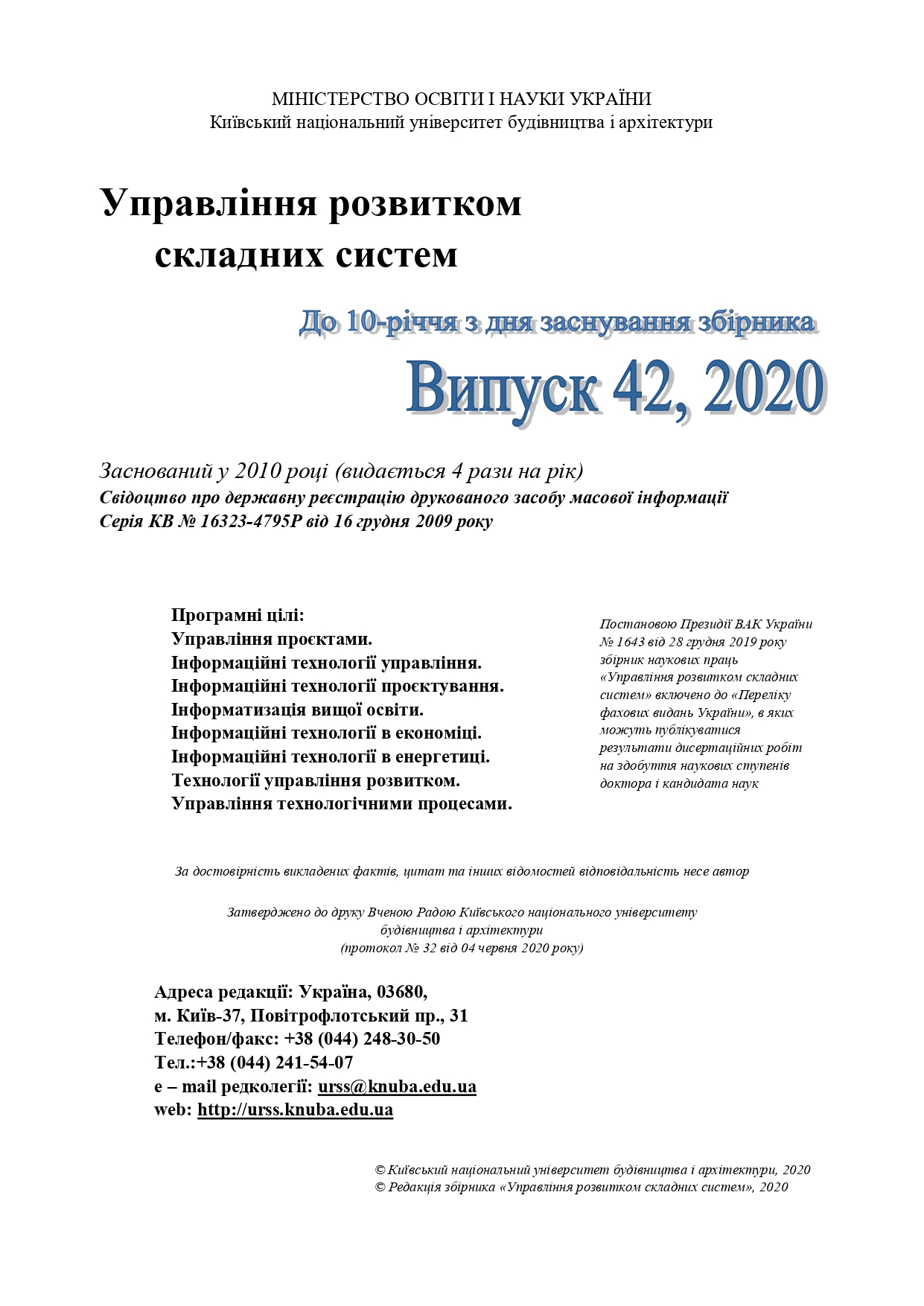PROBLEM OF SMART CITY INDIVIDUAL COMPONENTS FORMING
DOI:
https://doi.org/10.32347/2412-9933.2020.42.37-42Ключові слова:
Smart City, security, enterprise, ICT, trade enterprise, intellectual infrastructure, information system, information database, knowledge baseАнотація
The development of the digital society has led to the relevance of new research in the direction of considering Smart City as a paradigm of social development. The article defines the interpretation of "municipality competitiveness". There is also a review and analysis of recent research in the direction of building Smart City as a component of post-industrial economies of many countries. It is determined that the transformation of large industrial cities into Smart City is a global trend as well as a realistic prospect for many Ukrainian cities and the main driving force of development is the active participation of citizens in city life and management using intelligent and information systems based on information and communication technologies. In the direction of features and priorities of Smart City separate components formation the need for algorithms which have properties to adapt to changing scenarios of city services work and help the corresponding services to make the considered and at the same time operative decision in any even emergency situation is considered. Areas of Smart City development in the context of development of new information and communication technologies are defined. The basis and result of the existence of Smart City infrastructure is a single information space for processing urban processes and procedures – from environmental to social ones. This article explores the current trends and directions of Smart City creation, the organization of development of Smart City components in advanced countries and Ukraine. It is suggested that other key components, such as transport, security and trade, can be considered in the process of becoming a Smart City. Smart City infrastructure helps the socio-economic sphere, enterprises and households to increase economic efficiency reduce the burden on the environment, ensure the comfort and safety of residents. The result of these serious objectively necessary transformations will be an attractive Smart City, integrated into the interregional and international intelligent network, able to make the most effective use of the territorial and resource potential available to it.
Посилання
Glazer, A.L. (2013). City triumph: how our greatest cucess make us reacher, smarter, elilogical, healthy and happy. Economical sociology, 14, 4.
Asín, A. (2017). Smart Cities from Libelium Allows Systems Integrators to Monitor Noise, Pollution, Structural Health and Waste Management [Electronic source]. URL: http://www.libelium.com/smart_cities/.
Asín, A., Gascón, D. (2018). Smart Sensor Parking Platform Enables City Motorists Save Time and Fuel [Electronic source]. URL: http://www.libelium.com/smart_parking/.
Baron, S., Field, J., Schuller, T. (2000). Social Capital: Critical Perspectives. Oxford: Oxford University Press.
Caragliu, A., Del Bo, C., Nijkamp, P. (2009). Smart Cities in Europe. Series Research Memoranda 0048. VU University Amsterdam, Faculty of Economics, Business Administration and Econometrics.
Giffinger, R., Fertner, C., Kramar, H., Kalasek, R., Pichler-Milanovic, N., Meijers, E. (2008). Smart Cities – Ranking of European Medium-Sized Cities [Electronic source]. URL: http://www.smart-cities.eu/download/smart_cities_final_report.pdf
Hollands, R.G. (2008). Will the Real Smart City Please Stand Up? City, 12, 3. 303-320.
Komninos, N. (2002). Intelligent Cities: Innovation, Knowledge Systems and Digital Spaces. N.Y: Routledge, 320.
Nijkamp, P. (2008). E pluribus unum. Research Memorandum, Faculty of Economics, VU University Amsterdam.
Odendaal, N. (2003). Information and communication technology and local governance: Understanding the difference between cities in developed and emerging economies. Computers, Environment and Urban Systems, 27, 585–607.
Paskaleva, K. (2009). Enabling the Smart City: The Progress of E-City Governance in Europe. International Journal of Innovation and Regional Development, 1, 4, 405-422.
Torres, L., Pina, V., Royo, S. (2005). E-Government and the Transformation of Public Administrations in EU Countries: beyond NPM or just a Second Wave of Reforms? Online Information Review, 29, 5, 531-553.
Vehicle Traffic Monitoring Platform with Bluetooth over ZigBee [Electronic source]. URL: http://www.libelium.com/vehicle_traffic_monitoring_bluetooth_sensors_over_zigbee/.
Yusuf, Z. (2018). Parking Tech: An Accelerator to the Connected City... the Human City [Electronic source]. URL: http://www.huffingtonpost.com/zia-yusuf/parking-tech-an-accelerator_b_3326129.html.
##submission.downloads##
Опубліковано
Як цитувати
Номер
Розділ
Ліцензія
Авторське право (c) 2020 Alona Desiatko

Ця робота ліцензується відповідно до Creative Commons Attribution-NonCommercial-NoDerivatives 4.0 International License.

